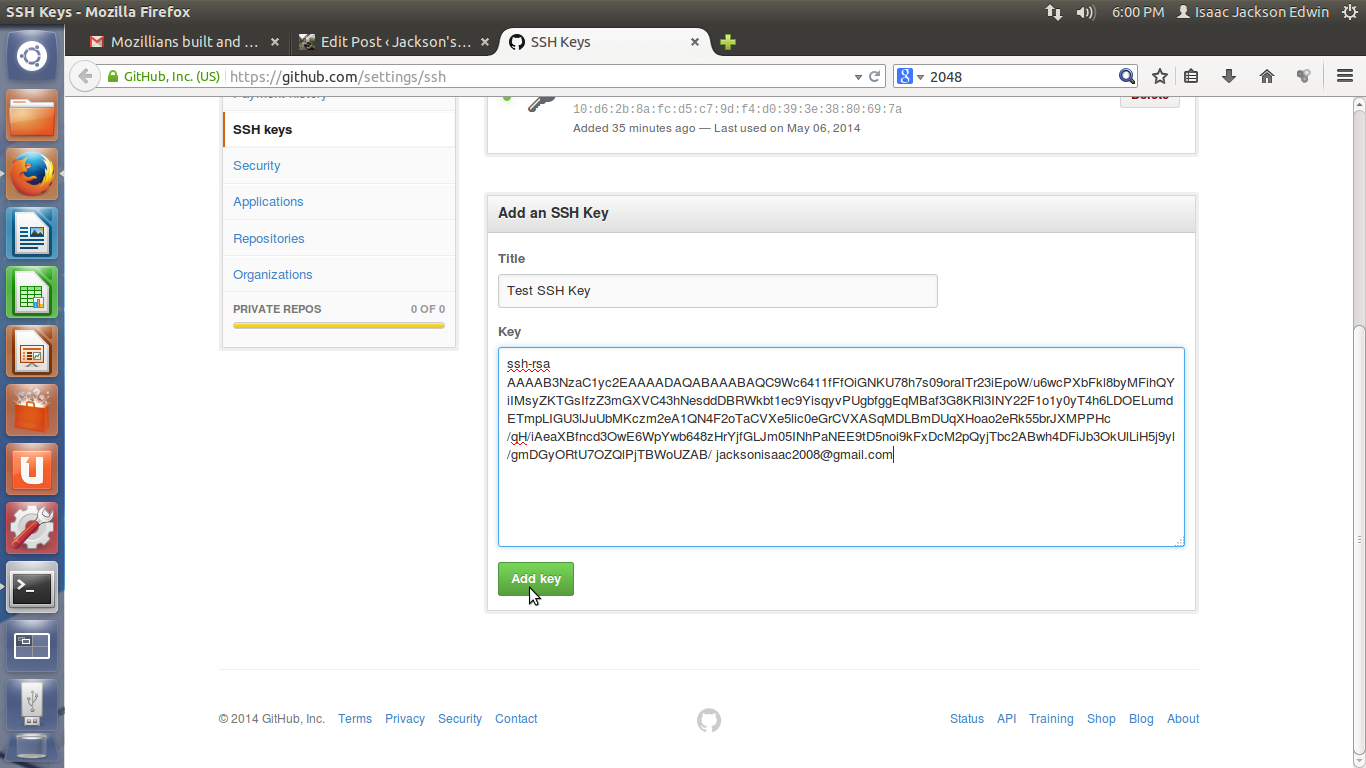How To Find Git Ssh Key
Posted : admin On 27.10.2019
If you're unsure whether you already have an SSH key, check for existing keys. If you don't want to reenter your passphrase every time you use your SSH key, you can add your key to the SSH agent, which manages your SSH keys and remembers your passphrase. Generating a new SSH key. Open Terminal Terminal Git Bash the terminal. Head 1: Windows. Just follow these 5 steps: Go to this address, and download msysgit, after the download install it with default settings. Open Git Bash that you just installed (Start-All Programs-Git-Git Bash) Type in the following: ssh-keygen -t rsa (when prompted, enter password, key name can stay the same).
How to create and configure the deployment SSH Keys for a Gitlab private repository in your Ubuntu Server. January 3rd 2018. 31K.When you work with a Git repository, your project may be actively modified by a lot of people. Some of them may not be trustworthy as they may be new employees or something like that. In this case, if they need to do git pull in the server to update the changes of a commit in your production server, you may not want that everybody knows the password of the repository. Another case where you don't want to provide the password of the repository everytime you do git pull or git clone, are automatized deployments.That's why the the 'deployment keys' feature exist in Gitlab, A deploy key is an SSH key that is stored on your server and grants access to a single Gitlab repository. This key is attached directly to the repository instead of to a personal user account.
How To Generate Ssh Key In Linux
In this article, we'll show you step by step how you can automatize the deployment process of your project hosted on Gitlab. Find or create an SSH Key for your serverThe first thing that you need to do is to verify if your server has already a public key created in the.ssh directory of the user in the server, so start a SSH session to your server and type the following command: cat /.ssh/idrsa.pubThis will automatically search in the folder of your user that in our case is /home/vagrant/.ssh, if the output of the command shows a string that starts with ssh-rsa, then you already have an SSH Key that you can use to add to your repository, so you can skip to the step 2. If instead, you get the output: cat: /.ssh/idrsa.pub: No such file or directory, then you will need to create an SSH Key first.
You can create a SSH Key in Ubuntu via SSH with the following command (navigate to the.ssh directory first and type): ssh-keygen -t rsaTo make the process easy, we won't add a Keyphrase for the SSH Key, so as mentioned in the creation wizard just press enter to don't use a keyphrase:As shown in the image, we no have the idrsa and idrsa.pub file in our.ssh directory. This key works as a 'pass' that allows to clone/pull your project in the current server, till this point it doesn't do anything, so you will need to follow the other steps. 2. Configure SSH client to find your GitLab private SSH in the serverAs next step you need to establish that, when cloning from Gitlab, the deployment key should be used as authentication instead of an username and a password. For this you need to ensure that ssh-agent is enabled by running the following command: eval $(ssh-agent -s)Then you can proceed to add your key to the SSH registry using the following command: # Add your private keyssh-add /.ssh/idrsaTo retain these settings you'll need to save them to a configuration file. Normally on OpenSSH clients you can configure this in the /.ssh/config file. Download driver canon ip2770 original mac. If the file doesn't exist, you can create it: # Go to SSH directorycd /.ssh/# Create the config file# alternatively create the file using SFTP# or in the way you want, we are using touchtouch configAnd register your key in the file.